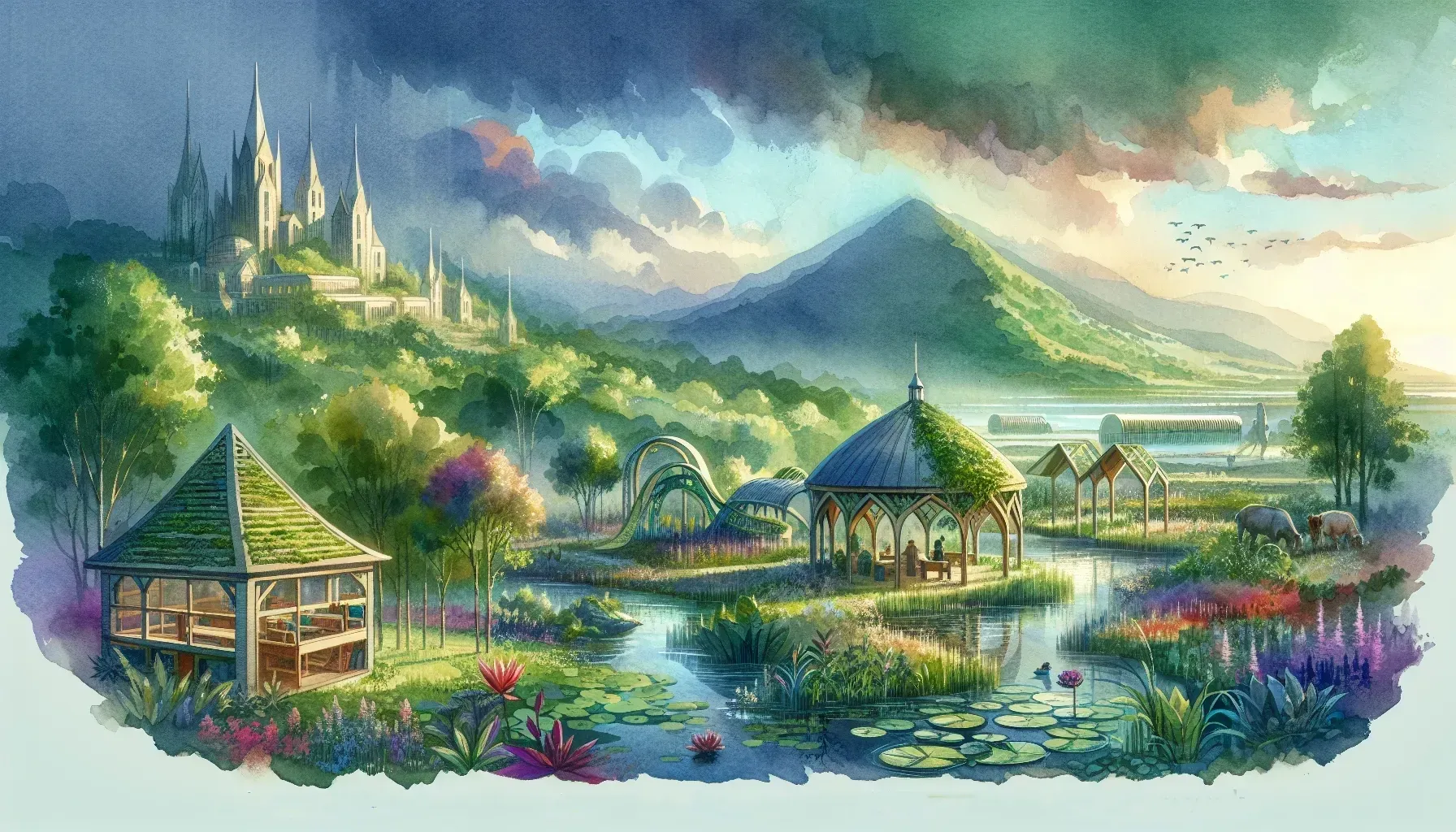Environmental Adaptations: Sustainable Approaches to Autism-Friendly Spaces

As the awareness and understanding of autism spectrum disorders grow, there is an increasing focus on creating inclusive and sustainable environments that cater to the specific needs of autistic children. This trend encompasses a holistic approach, integrating eco-friendly elements into sensory rooms, play areas, support programs, and educational settings. Let's explore the future outlook and emerging trends in environmental adaptations for autism-friendly spaces.
Eco-Friendly Sensory Rooms and Play Areas
In the coming years, we can anticipate a shift towards eco-friendly design and construction of sensory rooms and play areas tailored for autistic children. This trend aligns with the broader societal emphasis on sustainability and environmental responsibility. Using natural and non-toxic materials, such as organic cotton, bamboo, and recycled fabrics, will become prevalent in the creation of calming and stimulating environments for sensory regulation. The HorizonsMind Blog is excited to delve into these sustainable design ideas to create engaging spaces for autistic children.
The future of autism support programs will likely integrate nature-based therapies to provide holistic and sustainable interventions. Outdoor activities such as gardening, animal-assisted therapy, and nature walks hold promise in promoting well-being, social interaction, and sensory integration for autistic individuals. Incorporating these therapies into support programs not only fosters a connection with the natural world but also encourages environmentally conscious practices within the autism community.
Integrating Nature-Based Therapies into Support Programs
As technology continues to advance, we anticipate a surge in the development of sustainable sensory tools that cater to the unique sensory needs of autistic children. From eco-friendly fidget toys made from biodegradable materials to sensory-friendly wearable devices with minimal environmental impact, the market is set to witness a wave of innovative products designed to enhance daily experiences while aligning with sustainability goals.
Sustainable Sensory Tools for Everyday Use
Architectural designs that prioritize inclusivity and sustainability are poised to shape the future landscape of learning environments for autistic children. Concepts such as biophilic design, which incorporates natural elements into built spaces, and universal design principles will be instrumental in creating stimulating yet calming atmospheres conducive to learning. By weaving sustainability into architectural innovations, educational institutions can foster an environment where diversity is celebrated alongside environmental stewardship.
Architectural Innovations for Inclusive Learning Environments
The integration of green spaces within educational and therapeutic settings will offer autistic children tranquil retreats for relaxation and avenues for meaningful social interaction. These green spaces not only serve as serene retreats but also provide opportunities for horticultural therapy, encouraging sensory exploration and fostering a deeper connection with nature. This trend aligns with the evolving understanding of the restorative benefits of nature for individuals on the autism spectrum.
A significant trend on the horizon involves the use of sustainable materials in adaptive equipment and assistive devices designed for autistic individuals. From wheelchair-accessible garden beds crafted from reclaimed wood to sensory-friendly seating made from upcycled materials, the incorporation of sustainable resources into assistive technology underscores a commitment to environmental consciousness without compromising functionality or comfort.
Green Spaces for Calming Retreats and Social Interaction
Community gardens are poised to play a pivotal role in engaging autistic children with nature while fostering a sense of community involvement. These inclusive spaces offer opportunities for hands-on learning, sensory exploration through gardening activities, and social engagement within a supportive environment. By promoting community gardens as integral components of autism-friendly initiatives, we can cultivate a culture of environmental awareness while nurturing valuable life skills among autistic individuals.
Sustainable Materials in Adaptive Equipment and Devices
Looking ahead, life skills training programs tailored for autistic individuals are likely to incorporate sustainability education as an essential component. By integrating lessons on responsible consumption, recycling practices, energy conservation, and eco-conscious habits into life skills curricula, autistic children can develop environmentally friendly behaviors while acquiring vital everyday skills. This forward-looking approach emphasizes sustainability as an integral part of holistic development and independence for individuals on the autism spectrum.
In conclusion, the future holds exciting prospects for sustainable approaches to autism-friendly spaces. By embracing eco-friendly design principles, nature-based therapies, sustainable materials, and community engagement, we can create inclusive environments that cater to the diverse needs of autistic children while instilling a sense of environmental responsibility. The HorizonsMind Blog looks forward to exploring these transformative trends at the intersection of sustainability and autism support.
Frequently Asked Questions
Eco-friendly sensory rooms and play areas are designed using sustainable materials like organic cotton and bamboo to create calming environments for autistic children. These spaces focus on sensory regulation while promoting environmental responsibility, aligning with the growing emphasis on sustainability in design and construction.
Nature-based therapies, such as gardening and animal-assisted therapy, provide holistic support for autistic individuals by promoting well-being and social interaction. These activities foster a connection with nature, enhance sensory integration, and encourage environmentally conscious practices, making them valuable components of autism support programs.
Sustainability is crucial in life skills training for autistic children as it teaches responsible consumption, recycling, and eco-conscious habits. By integrating these lessons into curricula, children can develop essential everyday skills while fostering a sense of environmental responsibility, which is vital for their holistic development and independence.

